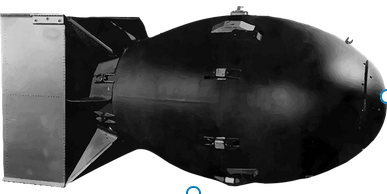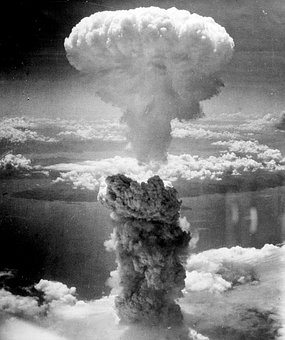Nuclear weapons are among the most potent weapons, producing devastation through nuclear processes such as fission (splitting atoms) or fusion (combining atoms). While most nuclear bombs are based on nuclear fusion, hydrogen bombs use nuclear fission, which requires a fission bomb to detonate.

The Power and Deterrent Effect of Nuclear Weapons
Due to their enormous destructive capabilities and potential for mass destruction, nuclear weapons are often seen as a deterrent to aggression. Their only known use in warfare occurred during World War II when the United States dropped two atomic bombs on the Japanese cities of Hiroshima and Nagasaki.
The Power and Deterrent Effect of Nuclear Weapons
Due to their enormous destructive capabilities and potential for mass destruction, these weapons are often seen as a deterrent to aggression. Their only known use in warfare occurred during World War II when the United States dropped two atomic bombs on the Japanese cities of Hiroshima and Nagasaki.

The Role of Nuclear Weapons in Global Power Dynamics
These weapons have become crucial for global superpowers, playing a significant role in restoring the balance of power. Having dictated the power dynamics and global events during the second half of the 20th century (Cold War era) they still continue to influence the modern-day power balance.
There are total of 13,865 nuclear warheads on earth today owned by only 9 countries. These countries are:
- United States
- Russia
- China
- United Kingdom
- France
- India
- Pakistan
- Israel
- North Korea.
Additional Insights
Non-Proliferation Efforts: International treaties like the Treaty on the Non-Proliferation of Nuclear Weapons (NPT) aim to prevent the spread of nuclear weapons and promote peaceful uses of nuclear energy.
Nuclear Disarmament: Various global movements and agreements, such as the Strategic Arms Reduction Treaty (START), work towards reducing the number of nuclear weapons.
Environmental Impact: Nuclear explosions have long-term environmental consequences, including radiation exposure and ecological damage.
To know more, you can refer to this article: https://en.wikipedia.org/wiki/Nuclear_weapon

